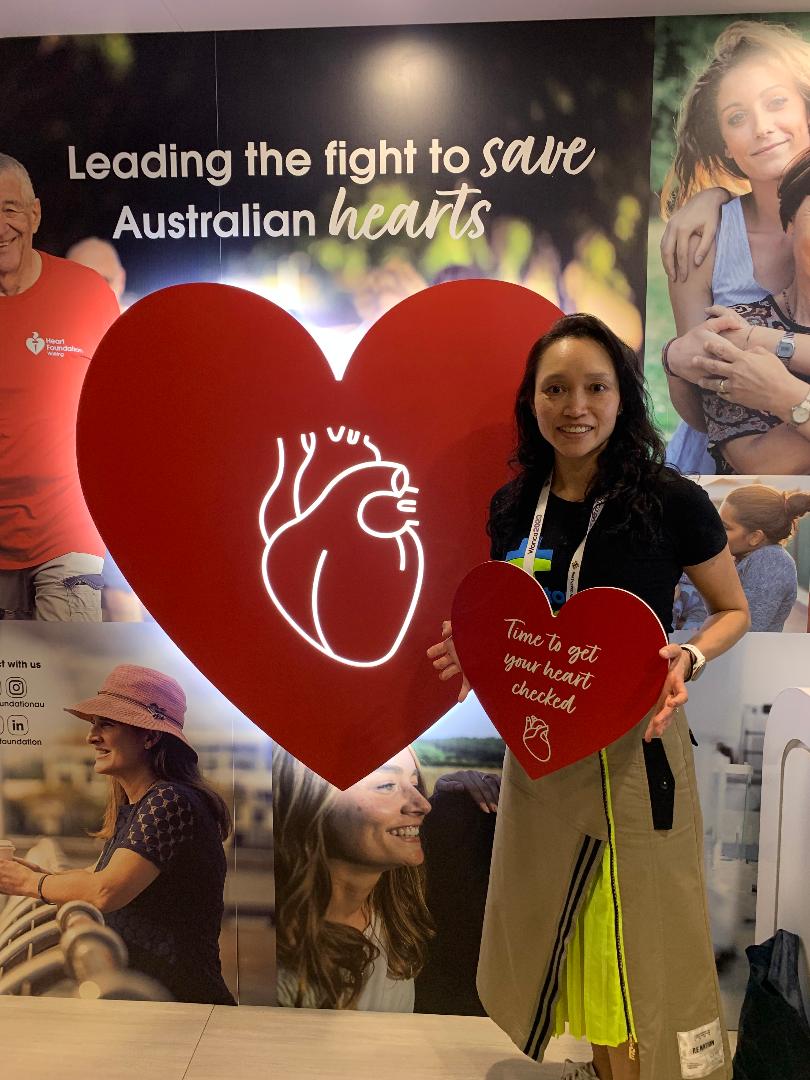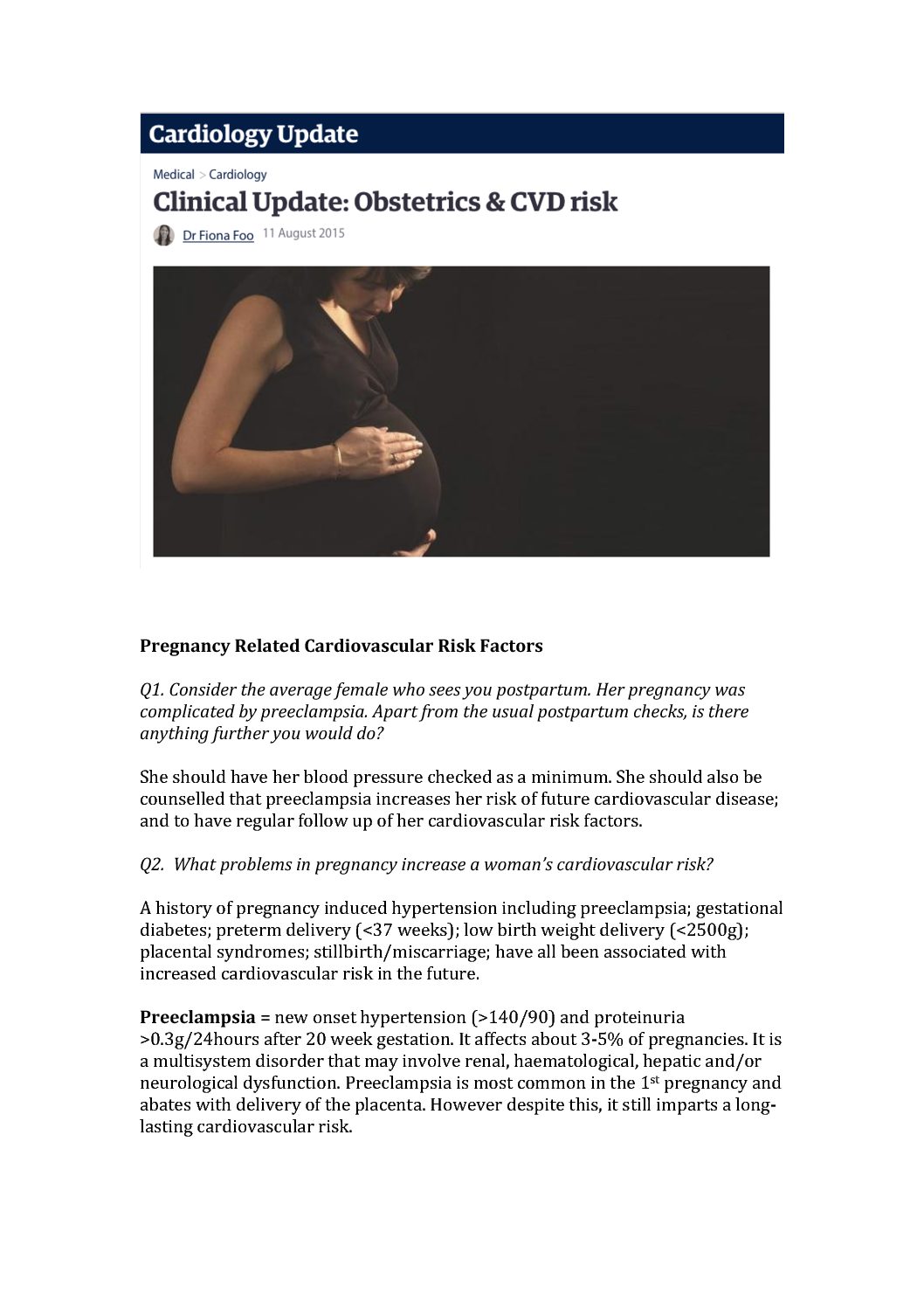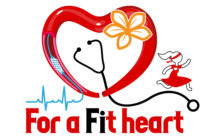
Victor Chang Institute "Women Against Heart Disease" Lunch - The Shangri-La Hotel, Sydney - Thursday 16th August, 2018
Photographer: Belinda Rolland © 2018
ABC interviews: Women receive less bystander CPR than men:
https://www.abc.net.au/news/2023-10-06/women-are-less-likely-to-receive-bystander-cpr/102944736?utm_source=abc_news_app&utm_medium=content_shared&utm_campaign=abc_news_app&utm_content=link
Women and Heart Disease
Watch these videos:
What Every Woman Should Know about Heart Disease
Cardiovascular Risk Factors in Women presentation Sydney Winter CPD festival:
Listen to Women and Heart Disease from Preventative Health in Podcasts:
For more information about women and heart disease read these articles written by Dr Fiona Foo:
Women and Cardiovascular Disease GP Connect Sydney Cardiology Group
Calling all women, are you at risk of a heart attack? Macquarie University Hospital GP E-news
HTT_CVD risk in women.v2_04MAR22_0
https://www.jeanhailes.org.au/news/stopping-the-yentl-syndrome-medical-observer
AusDoc articles: (requires registration with AusDoc to access)
How to Treat Cardiovascular Risk Factors in Women
https://www.ausdoc.com.au/therapy-update/closing-gender-gap-cardiac-care
https://www.ausdoc.com.au/therapy-update/gp-guide-heart-disease-women
http://www.australiandoctor.com.au/how-treat/women-and-heart-disease
Women and heart disease risk factors, how to treat
Other websites
https://www.victorchang.edu.au/womenheartdisease
https://www.heartfoundation.org.au
https://www.heartfoundation.org.au/Heart-health-education/Risk-factors-for-women
Heart Disease is the 2nd leading cause of death of Australian Women. It kills 3 times as many women than breast cancer. However awareness is still low, <40% of women know heart disease is the leading cause of death in women.
Some worrying facts:
- every hour of every day, an Australian Woman dies of heart disease. Ie 24 female lives are lost every day!
- 11 Australian women die each day from a myocardial infarction (MI)
- One woman dies of an MI every two hours
- 50 Australian women have a MI each day
- Women have increased mortality compared to men after an MI
Women with an MI often have an atypical presentation
- >40% of women will not present with chest pain,
- Other symptoms include pain in the jaw/neck/throat/shoulder/arm;
- Shortness of breath, a cold sweat, extreme fatigue, dizziness, and nausea.
Risk factors:
- >90% of women have at least one risk factor for heart disease
- 50% have 2 or more risk factors
- 1 in 3 women have high blood pressure or high cholesterol: nearly half a million aged 30-65 have high blood pressure or high cholesterol without knowing it.
- A woman’s risk of heart disease increases after menopause and gradually equals that of men.
- Cardiovascular risk factors include: high blood pressure, high cholesterol, diabetes, smoking, a family history of heart disease, being overweight/obese, physically inactive, depression,
- < 1in 3 women have had a heart health check with their GP.
- The Heart Foundation recommend a ‘heart health check” for women >45yo.
Young Women and Heart Disease
- risk factors don’t just begin after menopause, they start to appear in the late teens and early 20s.
- For Women aged 18-44: 1in 10 have high blood pressure, 1in 5 have high cholesterol, close to 1 million are obese and >1 million are overweight.
Other Non Traditional risk factors
- Non obstetric risk factors such as dysfunction in ovulation, early age of menarch and premature menopause all increase risk of cardiovascular disease (CVD)
- Polycystic ovarian syndrome – increases risk of future CVD, high blood pressure, diabetes and the metabolic syndrome
- Autoimmune diseases (eg Rheumatoid arthritis, SLE) are more prevalent in females, and increase their relative risk of coronary artery disease
- Obstetric Risk factors: preeclampsia, eclampsia, any hypertension in pregnancy, placental abruption, low birth weight <2500g, stillbirth/miscarriage, delivery <32 weeks and gestational diabetes all increase future cardiovascular risk.
- Psychological Risk Factors:Depression, anxiety, PTSD increase risk of CVD
- Low socioeconomic status
- Environmental Risk factors
Young Women and MIs
- Despite the reduction in MIs in the general population, there has been an increase in rates of MIs in young women.
- They have worse outcomes compared to similar aged men: such as higher in-hospital and 30day mortality rates and higher readmission rates.
- They also have more risk factors, more comorbidities and a poorer health status than similarly aged men.
Key Messages:
- Heart disease is a leading cause of death in women
- Women often have atypical symptoms
- Know the risk factors – females >55 should have a heart health check including measuring their blood pressure, blood sugar and cholesterol.
- Even young women are at risk of an MI, and certain pregnancy related complications, increase their cardiovascular risk. A female who has had a pregnancy related complication such as gestational diabetes or hypertension should be followed up regularly.



